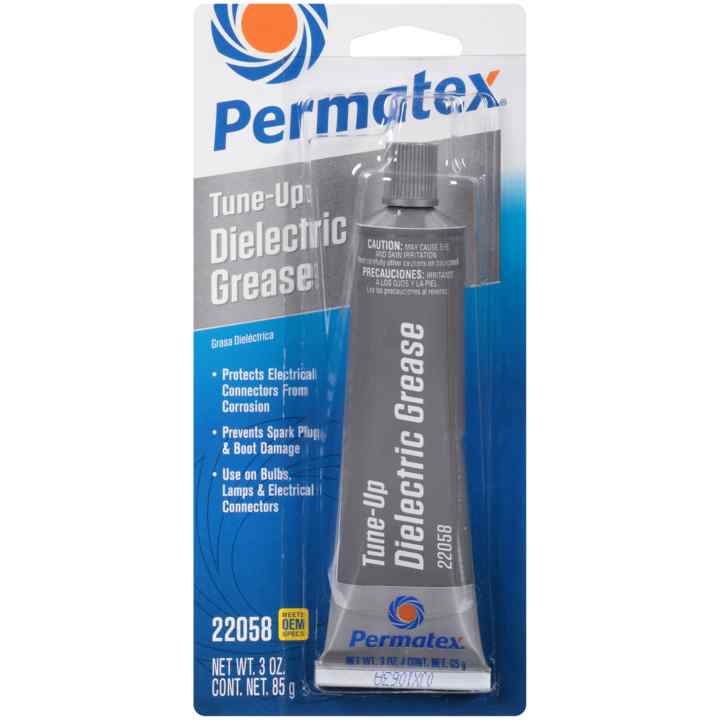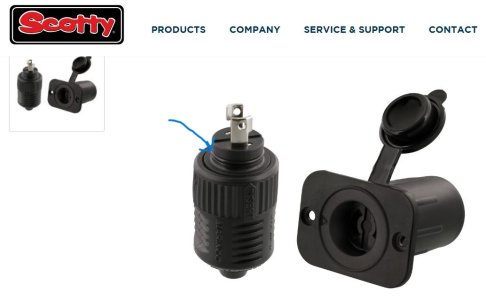Too often, I have to pull out my female scotty plugs and re-wire due to corrosion on the wires/contacts in that female plug. I try ot maintain the cover on the plug but maybe its wet male ends or missing seling up again that causes the corrosion ( likely doesnt help I have a washdown hose that I use after prawning or fish in the boat ). at Boat show yesterday and asked a Scotty guy about this. he mentionned he uses vaseline BUT it looks like vaseline is non-conductive so wouldnt that be an issue ? wondering if anyone came up with something that can suppress corrosion but maintain conductivity.
You are using an out of date browser. It may not display this or other websites correctly.
You should upgrade or use an alternative browser.
You should upgrade or use an alternative browser.
scotty downrigger plugs - corrosion
- Thread starter Dave....
- Start date
Aquaholic
Crew Member
We used Vaseline on light bulbs out back on a commercial salmon troller many years ago so they didn't get fused in the socket, it worked fine. I thought you might have had a spray hose close by if your ends are getting corroded.Too often, I have to pull out my female scotty plugs and re-wire due to corrosion on the wires/contacts in that female plug. I try ot maintain the cover on the plug but maybe its wet male ends or missing seling up again that causes the corrosion ( likely doesnt help I have a washdown hose that I use after prawning or fish in the boat ). at Boat show yesterday and asked a Scotty guy about this. he mentionned he uses vaseline BUT it looks like vaseline is non-conductive so wouldnt that be an issue ? wondering if anyone came up with something that can suppress corrosion but maintain conductivity.
kingblazer84
Well-Known Member
I would use proper Dielectric Grease or Fluid Film Spray

 www.permatex.com
www.permatex.com

Permatex® Dielectric Tune Up Grease, 3 OZ - Permatex
I thought that dielectric grease and fluid filme were non-conductive. To be more clear, the female plug is well sealed from behind, i think salt water is getting in the plug socket and causing corrosion. Thats why any protectant needs to be conductive. happy to be corrected...I would use proper Dielectric Grease or Fluid Film Spray

Permatex® Dielectric Tune Up Grease, 3 OZ - Permatex
www.permatex.com
kingblazer84
Well-Known Member
In the automotive world we always use it to help with corrosion issues in spark plug wire ends, coil boots, relays etc and never had any connection issues while using either. A conductive grease is never recommended to fix an electrical connector problem; a dielectric grease is always the best choice when choosing an electrical connector grease.I thought that dielectric grease and fluid filme were non-conductive. To be more clear, the female plug is well sealed from behind, i think salt water is getting in the plug socket and causing corrosion. Thats why any protectant needs to be conductive. happy to be corrected...
ship happens
Well-Known Member
Nothing works if you keep the stuff outside all year and use them all year. If they are always mounted and the boat is tied up 12 months a year. Hardwire is the only way to go.
Alex_c
Well-Known Member
Unless you go full solid gold contacts on plug and receptacleNothing works if you keep the stuff outside all year and use them all year. If they are always mounted and the boat is tied up 12 months a year. Hardwire is the only way to go.
absolutely...ends of wire get corroded ( presumably from water entering via the socket as rear cover is sealed tight and behind transom wall ). thxTo be clear, your concern is corrosion at the wire to receptacle connection? Not the male/female parts corroding?
Aquaholic
Crew Member
For your corroded wire to receptacle, we used silicone on connections like those that were in weather all the time, or grease, as it is just protecting the outside of an existing connection. Real world answer, not an electrician at all.absolutely...ends of wire get corroded ( presumably from water entering via the socket as rear cover is sealed tight and behind transom wall ). thx
Jegermiester
Member
Is it possible that this rubber o-ring may be missing on your plug in, provided you have the Marinco style plug/receptacle??Just reflecting on the great answers and suggestions... I am now realizing that folks meant add dielectric grease on top of the connections as opposed ot coating the wires...sorry...been a long week.. thx all.
This is what Scotty mentions in their description:

I also use Dielectric grease on the prong connectors and never have had any issues.

Last edited:
Captain PartyMarty
Crew Member
I got so tried of dealing with Scotty's ****** plugs. I replaced mine with Belkin IP68 rated plugs two years ago and they still look brand new! If your interested here is the catalog https://www.mouser.com/datasheet/2/57/bulgs00816_1-2262731.pdf
Get the 2 pin high current version, and never have a problem again!
Get the 2 pin high current version, and never have a problem again!
seachicken
Active Member
If dielectric grease was conductive you would have a dead short any time you put it in a plug with power and ground. It coats to prevent corrosion, use it on wires inside crimped connectors and in plugs to displace moisture. The surface area of the contact between conductive materials creates conductivity.I thought that dielectric grease and fluid filme were non-conductive. To be more clear, the female plug is well sealed from behind, i think salt water is getting in the plug socket and causing corrosion. Thats why any protectant needs to be conductive. happy to be corrected...
100%, slather grease on any exposed metal, especially anything copper. The only way to prevent corrosion in this application to to keep 100% of the salt water out.Use dielectric or Vaseline....metal on metal makes the connection - the non conductive gel just stops the corrosion...been doing it for years and it works.
There's always a ton of debate around this topic. It's true adding grease/vaseline/fluidfilm to an electrical connection will result in slightly worse contact, higher resistance. However, although a dry connection is the best electrical connection, a dry connection only stays good until corrosion starts. After that the connection gets worse, higher resistance, maybe gets hot, stops working, if you're lucky one day even starts a fire. Connections with exposed copper, ends of wires into connectors etc are the worst. Tin plated parts do seem to hold up well.
A connection that's fully coated in grease or whatever waterproof goop you want will be slightly less good from day one than a dry made connection, but it will stay slightly less good for a very very long time, where the dry made one will turn to absolute crap from corrosion pretty quickly if there's any salt water exposure. Unless you get very high quality plugs like the Belkins mentioned already here, dry connections with any salt water exposure are going to turn to crap.
My philosophy is grease the heck out of every connection and be confident they will good enough and remain reliable for a long time. I spray everything with CRC corrosion inhibitor. It seeps into all the crevices and sets up into a thick waxy coating. I find it sticks around longer than fluid film and gets better coverage than grease. For the scotty plugs I stick the straw from the spray can inside the plug boots and spray liberally.
Similar threads
- Replies
- 19
- Views
- 5K

